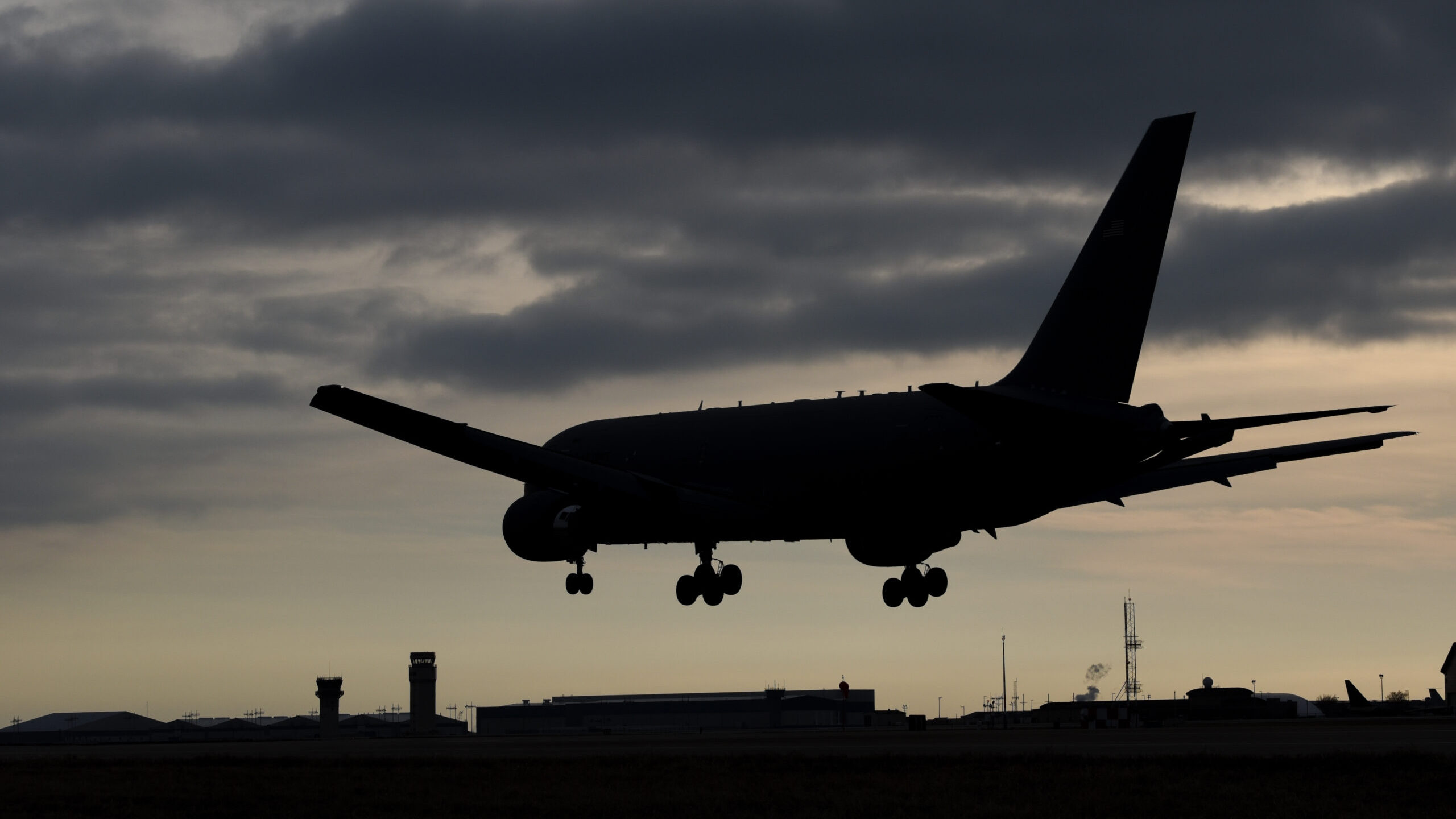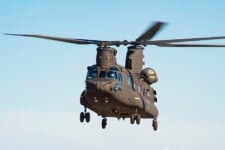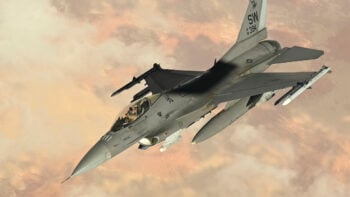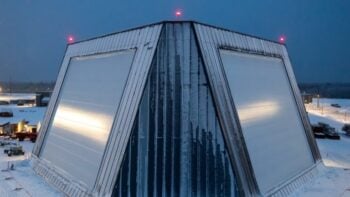
A KC-46A Pegasus arrives at McConnell Air Force Base, Kan., Jan. 31, 2019. (Airman 1st Class Alexi Myrick/US Air Force)
TEL AVIV: While Israel is working hard to signal it is gearing up to strike Iranian nuclear sites, government sources here say there is almost no chance of Israeli military action without American approval — approval that does not seem likely to come in the near term.
Israeli sources point to two examples of what they view as America attempting to slow Israel’s push towards military action: the unofficial rejection of an Israeli request to get air refueling services from US Air Force tankers if and when Israel decides to attack, and the fact that Israel could not convince the US to make an emergency move to speed up delivery of two KC-46A tanker aircraft, currently scheduled to be delivered in the 2023-2024 timeframe.
“The US effort to cool off the Israeli intention to act is portrayed by small delays and longer evaluation of Israeli requests,” one Israeli defense source told Breaking Defense on condition of anonymity. Sources briefed on the results of a recent Israeli delegation to the US noted frustration on the part of Israeli Defense Minister Benny Gantz over the response from DC.
The best-case timeline for an Israeli strike is still some months out, defense sources with knowledge of Israeli preparations tell Breaking Defense. That timeline is the result of the particularly complicated nature of attacking the Iranian nuclear sites, spread around this country and protected by thick layers of rocks and sand. (Had Israel been able to receive the KC-46A tankers earlier than planned, it would have accelerated the timeline for a potential strike.)
A spokeswoman for the Pentagon directed inquiries to the State Department; a spokesperson for State declined to comment.
RELATED: Israel, US step up direct actions against Iranian drone production
While the Biden administration and its European partners are in ongoing negotiations with Iran about a new nuclear deal, officials in Israel have been openly saying for months that they doubt any agreement will come together. The message has been consistent: that Israel will act for its own security, with or without American consent, and is preparing for war.
For instance, earlier this month David Barnea, the head of the Israel Mossad, said in an internal ceremony of the covert organization that Israel will do “whatever it takes” to make sure Iran never develops a nuclear weapon, and that a bad nuclear deal between powers is “intolerable.”
Meanwhile, Israeli Defense Forces Chief of Staff Gen. Aviv Kohavi has said a few times this year that military planning is underway, most notably in January when he said “I have ordered the IDF to prepare a number of operational plans, in addition to the existing ones. We are studying these plans and we will develop them over the next year.”
But experts such as Giora Eiland, a retired IDF general officer who led the Israeli National Security Council, are skeptical that Israel would truly act without Washington’s backing. “If and when Israel will feel that there is no other type of action to stop the Iranians, it will involve a serious dialogue with Washington,” he told Breaking Defense.
RELATED: Israel To Request America’s New GBU-72 Bunker Buster Bomb
In lieu of a full-out assault on Iranian locations, Israel may be continuing the “shadow war” efforts that were common against Iran during the previous presidency of Benjamin Netanyahu.
Two weeks ago, the Iranians claimed that an Iranian air defense test on in the Natanz area near one of their centrifuges complex caused a large explosion heard in a vast area. But since the official announcement, Middle Eastern and Gulf media outlets have claimed that unmanned aerial vehicles penetrated Iran’s airspace, and were not shot down by air defense systems.
According to the Kuwaiti newspaper Al-Qabas, more than five reconnaissance UAVs penetrated Iranian airspace, and the Iranian missile system “Bavar 373” and the Russian S-300 air defense systems failed to shoot them down. While Israel has not claimed responsibility, the assumption in regional defense circles is that Jerusalem was behind the flights, perhaps as a test of Iran’s air defenses.
Northrop sees F-16 IVEWS, IBCS as ‘multibillion dollar’ international sales drivers
In addition, CEO Kathy Warden says the company sees a chance to sell up to five Triton UAVs to the NATO alliance.


























